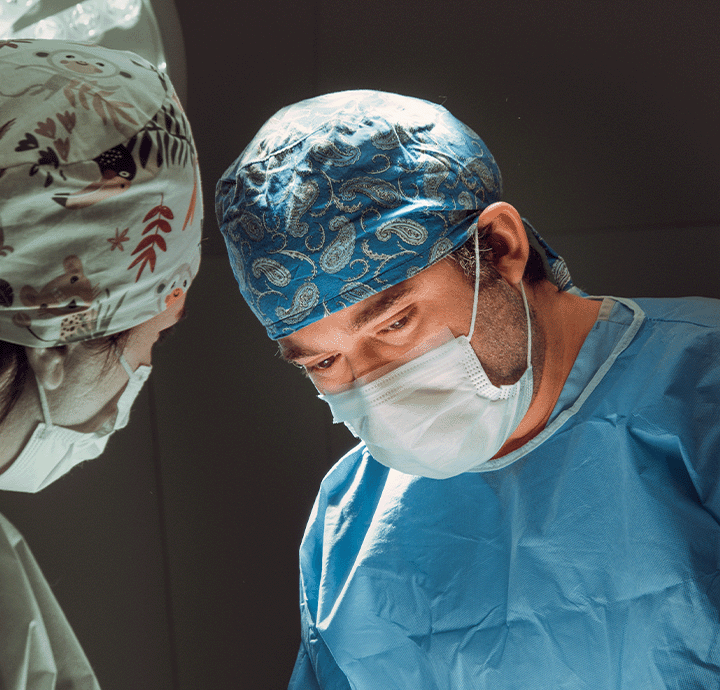
Ethnic rhinoplasty has become one of the most sought-after cosmetic procedures worldwide, especially among patients who want to refine their noses while preserving their cultural identity and unique facial features. However, choosing the right surgeon, clinic, and treatment plan requires careful research. Asking the right questions before your procedure ensures that you stay informed, safe, and confident throughout your rhinoplasty journey.
In this comprehensive guide, we explore the top 10 essential questions you should ask before getting ethnic rhinoplasty, and why each question matters for your results, recovery, and overall satisfaction.
1. What Is Your Experience With Ethnic Rhinoplasty?
Not every rhinoplasty surgeon specializes in ethnic noses. Ethnic rhinoplasty requires a deep understanding of nasal anatomy in African, Middle Eastern, Asian, and Latin populations.
You should ask your surgeon:
- How many ethnic rhinoplasty procedures have you performed?
- Which ethnic backgrounds do you frequently work with?
- Do you have before-after photos of patients with similar features?
Choosing a surgeon with a proven track record ensures that they can enhance your nose without erasing your identity.

2. What Techniques Do You Use for Structurally Strong Results?
Ethnic noses often have unique anatomical characteristics such as:
- Thick skin
- A low dorsum
- Wide or weak nasal cartilage
- Broad nasal base
These features require personalized techniques such as:
- Structural grafting
- Tip support reconstruction
- Alar base reduction
- Dorsum augmentation
Your surgeon should explain which techniques they will use and why. This transparency builds trust and clarifies what you can expect from your results.
3. How Will You Preserve My Natural Ethnic Features?
One of the main goals of ethnic rhinoplasty is maintaining harmony with your cultural identity.
Ask your surgeon:
- What aesthetic philosophy do you follow?
- How do you ensure that results look natural and not “Westernized”?
- Can you show examples of natural-looking results?
The best surgeon focuses on enhancement, not transformation—preserving what makes your face unique while improving balance and symmetry.

4. What Results Can I Realistically Expect?
Every patient has different skin thickness, cartilage strength, and healing patterns.
You should ask:
- What is achievable with my anatomy?
- Are my expectations realistic?
- What limitations should I be aware of?
A good surgeon will be honest about what can and cannot be done. Avoid clinics that make unrealistic promises or offer identical results for every patient.
5. Will You Use Open or Closed Rhinoplasty? Why?
This is a crucial question because each method has advantages:
Open Rhinoplasty
- Better visibility
- Ideal for complex ethnic cases
- Allows precise structural work
Closed Rhinoplasty
- No external incision
- Faster recovery
- Suitable for minor refinements
Your surgeon should confidently explain why a specific approach is best for your unique anatomy and goals.

6. What Type of Grafts Will You Use, If Needed?
Grafts help build structure and support. Ask your surgeon:
- Will you use cartilage from my septum, ear, or rib?
- Why is that graft material necessary?
- Are synthetic implants recommended?
Most top surgeons prefer natural cartilage, especially in ethnic rhinoplasty, because it adapts better and offers long-term stability.
7. What Does the Recovery Process Look Like?
Recovery varies depending on your anatomy and surgical techniques. Important questions include:
- How long will bruising and swelling last?
- When can I return to work?
- When can I exercise again?
- How long until the final results appear?
Ethnic patients—especially those with thick skin—may experience longer swelling phases. Understanding this helps you set realistic timelines.
8. What Are the Potential Risks and Complications?
No surgery is risk-free. A trustworthy surgeon will openly discuss:
- Infection
- Breathing problems
- Overcorrection or undercorrection
- Asymmetry
- Need for revision rhinoplasty
If the surgeon avoids discussing risks, consider it a red flag.
9. How Do You Handle Revisions if Needed?
Even with the best surgeons, a small percentage of patients may need revision rhinoplasty due to healing differences or unexpected outcomes.
Ask your surgeon:
- What is your revision policy?
- Is there an additional cost?
- How long must I wait before a revision?
A professional, ethical clinic will be transparent about revision procedures and costs.
10. Why Should I Choose Your Clinic Over Others?
This final question helps you evaluate:
- Professionalism
- Communication style
- Clinic technology
- Patient care standards
- Surgical philosophy
You should feel comfortable, respected, and fully informed. A reputable surgeon will answer confidently and clearly.
Bonus: Additional Questions Worth Asking
If you want to go deeper, consider asking:
- Do you use 3D imaging to plan the surgery?
- How long have you been performing rhinoplasty?
- Are you a board-certified surgeon?
- How many international patients do you treat annually?
- What languages does your medical team speak?
These questions help you assess expertise, communication, and overall patient experience.
Empower Yourself Before Your Ethnic Rhinoplasty
Ethnic rhinoplasty is an art that requires medical skill, cultural sensitivity, and deep anatomical understanding. Asking the right pre-surgery questions allows you to:
- Protect your identity
- Ensure structural and aesthetic balance
- Avoid unrealistic expectations
- Choose a surgeon who shares your vision
- Feel confident about your decision
Whether you’re from Africa, the Middle East, Asia, Latin America, or mixed ethnic heritage, the right surgeon will tailor your rhinoplasty to you—not the other way around.
Your nose is part of your story. Ask wisely, research thoroughly, and choose a specialist who respects both your beauty and your background.

